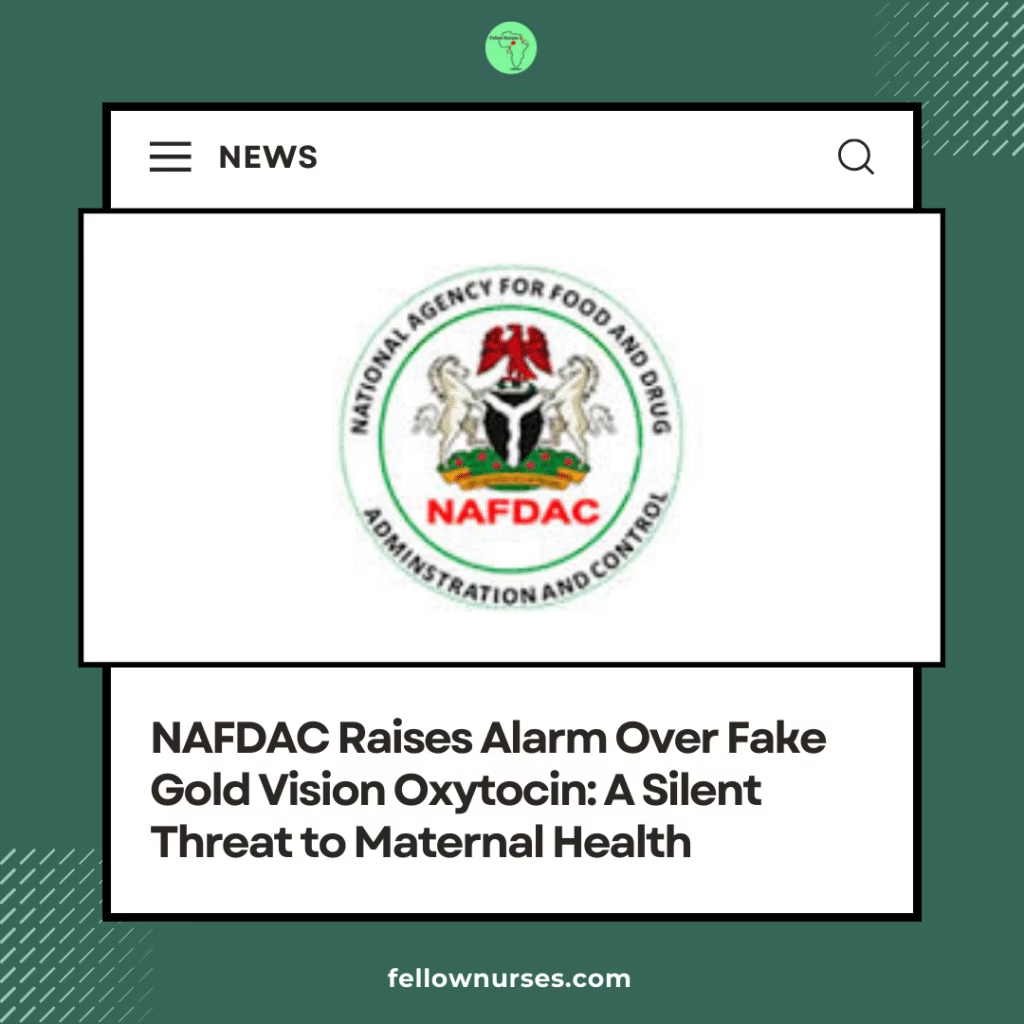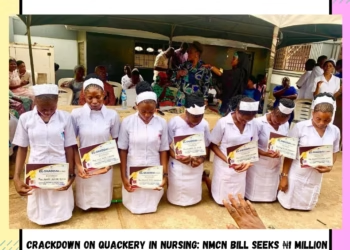The National Agency for Food and Drug Administration and Control (NAFDAC) has sounded a sharp warning to Nigerians following the discovery of falsified Gold Vision Oxytocin injections (10 IU) in circulation. The counterfeit drug, flagged under Public Alert No. 028/2025, carries a fake NAFDAC registration number (A4-9566) and represents a direct threat to maternal and newborn health across the country.
A Counterfeit With Deadly Consequences
Oxytocin, often referred to as a “lifeline drug” in maternity wards, is critical for:
- Inducing or strengthening labour,
- Controlling postpartum bleeding,
- Supporting lactation.
But when falsified or ineffective, the consequences can be catastrophic: ineffective uterine contractions, uncontrolled haemorrhage, and even maternal death.
This is why NAFDAC’s findings are deeply troubling for Nigeria, a country already grappling with high maternal mortality rates.
What NAFDAC Found
Investigators traced the falsified oxytocin to a product allegedly manufactured by Anhui Hongye Pharmaceutical Co., Ltd., China, and marketed locally by Gold Vision Medicals, Enugu. However, the agency confirmed that the injection is not registered in Nigeria.
Worryingly, the alert did not stop at oxytocin alone. NAFDAC’s risk-based sampling revealed three other falsified products also circulating under the same fake registration number:
- A-tocin injection
- Extocin injection
- Claxitodin injection

Official Reaction and Call to Action
According to NAFDAC, all zonal directors and state coordinators have been instructed to intensify surveillance and withdraw falsified products wherever they appear in the supply chain.
Healthcare professionals and consumers have also been urged to:
- Scrutinize all oxytocin products for authenticity and physical condition.
- Avoid purchasing from unlicensed suppliers.
- Report any suspicious medicines through NAFDAC’s E-reporting platform or directly at the nearest office.
- Flag adverse reactions linked to suspicious injections immediately.
A Maternal Health Emergency
For health workers, particularly nurses and midwives on the frontlines of childbirth, the discovery is a critical reminder of the fragility of Nigeria’s drug supply chain. With maternal health outcomes already stretched, counterfeit drugs risk undoing years of progress.
“This isn’t just a regulatory infraction—it’s a matter of life and death for mothers and babies,” one senior midwife in Lagos told Fellow Nurses Africa.
The Bigger Picture
The falsified oxytocin saga underscores a deeper issue: the need for stronger pharmaceutical oversight and regional collaboration across Africa. From importation checks to post-market surveillance, drug safety remains a weak link in healthcare systems—one that counterfeiters continue to exploit.
For now, NAFDAC’s swift action has placed the issue in the spotlight. But the fight against fake medicines is far from over.
Bottom Line
The public must remain alert. Every vial, every injection, and every dose must be scrutinized. For expectant mothers, for newborns, and for the professionals tasked with saving lives—there is no room for error.










